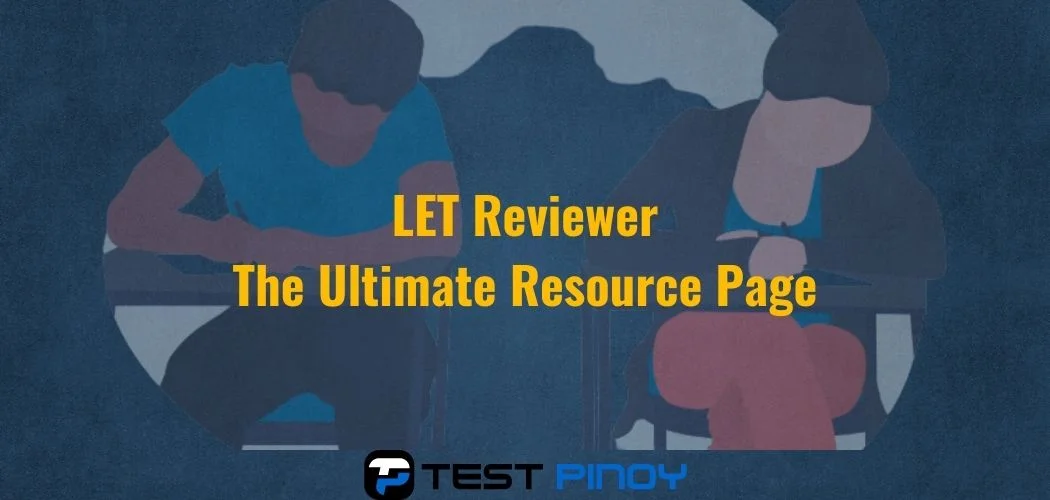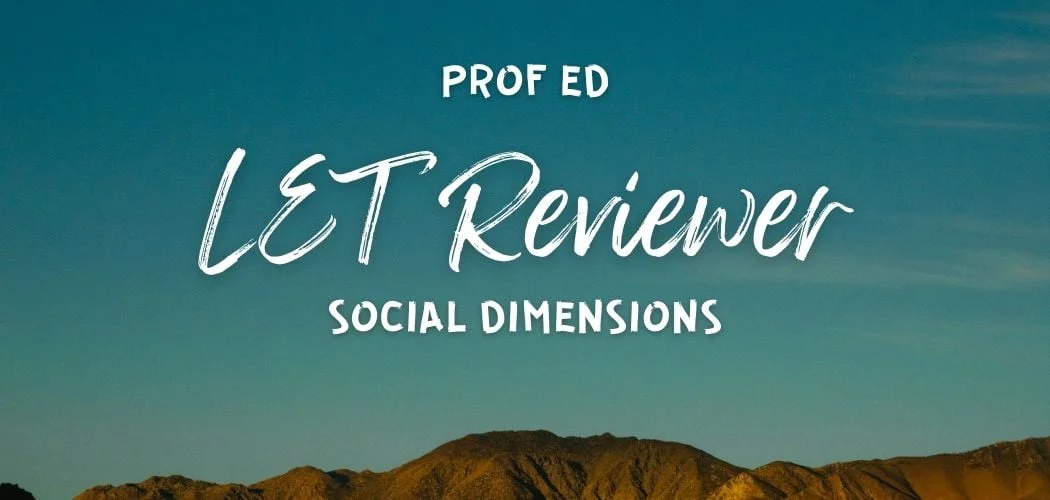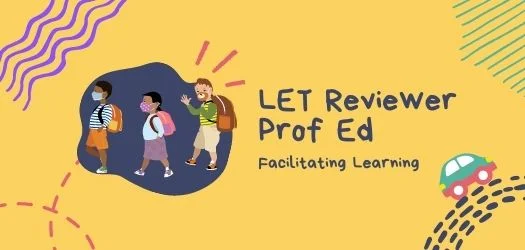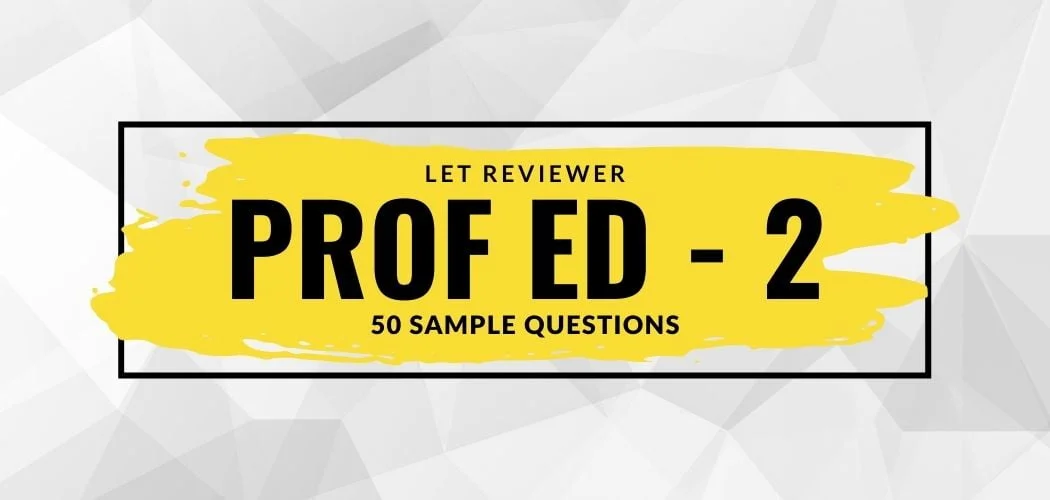This is Part 2 of our free LET reviewer that covers the Science subject. This has 50 multiple-questions that can be completed in 30 minutes.
RELATED: SCIENCE PART 1 GEN ED LET REVIEWER
Get a sense of what’s coming on your licensure exam by answering this set of questions. This reviewer is intended for the General Education (Gen Ed) portion of the exam but Science majors will find it useful, too.
Recommended reading
- 5 Research-Based Techniques to Pass Your Next Major Exam
- (13 Tips From Repeaters) How to Pass the LET the First Time
- How to Remember Better: A Study Tip
Gen Ed Science reviewer
Question 1. Metabolism and combustion are chemically similar. They both result in the oxidation of some compounds. If completely oxidated, which of the following foodstuffs would yield the MOST thermal energy?
A. A cup of ice cream✅
B. A cup of sugar
C. A cup of milk
D. A cup of flour
Question 2. In countries where medical skills and public understanding of health and disease are widespread, which of the following changing are evident?
I. Accidental deaths have decreased.
II. The communicable disease death rate has decreased.
III. Infant mortality rate has decreased.
IV. More people live a full life.
V. People who live long enough succumb to degenerative disease.
A. I, II, III
B. II, III, IV, V
C. I, II, III, IV, V
D. I, II, III, IV✅
Question 3. Which of the following parts of the circulatory system carries digested fats away from the small intestines?
A. Pancreatic duct
B. Arterial capillaries
C. Pulmonary artery
D. Lacteals✅
Question 4. During processing and cooling which part of the food is mostly destroyed?
A. Fats
B. Proteins
C. Vitamins✅
D. Carbohydrates
Question 5. When water evaporates, it changes into which of the following states?
A. Solid
B. Matter
C. Gaseous✅
D. Liquid
Question 6. Which of the following statements is NOT TRUE about comets?
A. Comets are mostly frozen gases and cosmic dust.
B. Comets glow by their own lights
C. Comets generally have elongated elliptical orbits.
D. Comets may go around the sun in any direction.✅
Question 7. What is the first element in the periodic table?
A. Helium
B. Hydrogen✅
C. Oxygen
D. Carbon
Question 8. A change in the shape or size of an object can be classified as _________.
A. mechanical change
B. physical change✅
C. nuclear change
D. chemical change
Question 9. In what state is most matter in the universe?
A. Gas
B. Liquid
C. Solid
D. Plasma✅
Question 10. Two glass tumblers that are stuck one inside the other may be loosened by _______.
A. pouring cold water on the outside tumbler after filling the inside tumbler with equally cold water.
B. pouring hot water on the outside tumbler after filling the inside tumbler with equally hot water.
C. pouring cold water on the outside tumbler after filling the inside tumbler with hot water.
D. pouring hot water on the outside tumbler after filling the inside tumbler with cold water.✅
Question 11. A thermometer measures ____.
A. energy
B. heat
C. pressure
D. temperature✅
Question 12. What is the color of the hottest star in the Universe?
A. red
B. blue✅
C. yellow
D. orange
Question 13. Which of the following forms of energy travels in waves?
A. Chemical energy
B. Sound energy✅
C. Light energy
D. Electrical energy
Question 14. A British physician and bacteriologist, Sir Ronald Ross was awarded the Nobel Prize in medicine for his research in the _____.
A. liquid fuel rocket
B. prevention of hepatitis
C. transmission of malaria✅
D. control of cholera
Question 15. When lighted, the energy of the alcohol in a lamp is?
A. lost while heating is done.
B. transformed from chemical to mechanical energy.
C. transformed from chemical energy to heat energy.✅
D. completely destroyed.
Question 16. Which process occurs solid is changed into gas?
A. Evaporation
B. Condensation
C. Sublimation✅
D. Decomposition
Question 17. The first Filipino who was declared a natural scientist and who contributed much in discovering local plants that can be used as a medicine is _____.
A. Dr. Pacifico Marcos
B. Dr. Henry Moseley
C. Dr. Eliseo Kintanar
D. Dr. Alfredo Santos✅
Question 18. Two items of similar shapes and weights are dropped simultaneously in a building. Which of the following statement is correct about falling objects?
A. The shape of the object has a minor effect on the falling rate.
B. The weight of the object has no effect on the falling rate.
C. The distance of the fall has an effect on the falling rate.✅
D. The resistance of the air has no effect on the falling rate.
Question 19. The thyroid can be destroyed through:
A. radioactive zinc
B. radioactive iodine
C. radioactive carbon
D. radioactive iodine✅
Question 20. A soda-acid type of fire extinguisher is recommended for putting out fires that involve burning _______.
A. insulation on wires✅
B. vegetable oil
C. dry chemicals
D. panted chemicals
Question 21. An atom or a group of atoms that has an excess/deficiency of electrons is called ______.
A. neutron
B. proton
C. ion✅
D. molecules
Question 22. Fossils are most likely to be found in?
A. Metamorphic rocks
B. Igneous rocks
C. Sedimentary rocks✅
D. Ocean floor
Question 23. If a doctor describes a patient as dehydrated, he means that the patient ______.
A. has a contagious disease
B. needs insulin
C. needs oxygen
D. has lost a great deal of water✅
Question 24. Radium was discovered by:
A. Albert Einstein
B. Pierre and Marie Currie✅
C. Joseph John Thompson
D. Albert van Haller
Question 25. Acid becomes colorless when added with
A. Litmus indicator
B. Methyl Orange Indicator
C. Universal Indicator
D. Phenolphthalein Indicator✅
Question 26. Astronauts strap themselves to a wall or bunk when they sleep. This is because during a change of shuttle velocity an unstrapped sleeping astronaut would likely slump into the shuttle wall and be injured. Do these astronauts have to be strapped down because?
A. They are unable to sleep while floating in free space.
B. Gravity is weak to have them remain in bed.✅
C. Their body functions have to be constantly monitored.
D. Their bodies have inertia.
Question 27. The history of the earth has been divided by scientists into eras. Which of the following shows the arrangement of these eras into a sequence from the oldest to the most recent?
A. Precambrian, Mesozoic, Cenozoic, Paleozoic.
B. Paleozoic, Cenozoic, Precambrian, Mesozoic.
C. Cenozoic, Mesozoic, Paleozoic, Precambrian.
D. Precambrian, Paleozoic, Mesozoic, Cenozoic.✅
Question 28. Which of the following is closest to normal body temperature?
A. 32 degrees Fahrenheit
B. 50 degrees Celsius
C. 212 degrees Fahrenheit
D. 37 degrees Celsius✅
Question 29. Sulfuric acid is not used in
A. Making Fertilizers
B. Detergents
C. All of the above
D. None of the above✅
Question 30. Which of the following statement(s) is/are TRUE?
I. Water in a cup and water in a pot at 100 degrees Celsius have molecules of the same degree of activity.
II. It takes more burning of fuel to produce a pot of boiling water than to produce a cup full of water.
III. The unit used in measuring the quantity of heat is the calorie
IV. A pot full of water has a greater number of active molecules than those a cup full of water.
A. II and IV only
B. All of these statements✅
C. None of these statements
D. I and III only
Question 31. Which of the following causes the seasons?
A. The rotation of the Earth around the Sun.
B. The rotation of the Sun around the Earth
C. The distance of the Earth around the Sun
D. The tilting of the Earth on its axis.✅
Question 32. Which of the following statements best explains why copper is the metal most widely used in electrical wiring?
A. It is the best conductor of electricity
B. It is cheaper than aluminum.
C. It is a better conductor than aluminum and cheaper than silver.✅
D. It has high resistance to electricity.
Question 33. To achieve ecological balance, which of the following sets of components should an aquarium contain?
A. Water, fish
B. Water, snail, fish
C. Water, plants, fish
D. Water, plants, snail, fish✅
Question 34. A solar eclipse occurs when ________.
A. The Moon is between the Earth and the Sun.✅
B. The Earth is between the Moon and the Sun
C. The Sun is between the Earth and the Moon.
D. The Earth is behind the Sun.
Question 35. What phase of the Moon is observed when it cannot be seen at all because it passes directly between the Earth and the Sun?
A. New Moon✅
B. First Quarter
C. Last Quarter
D. Full Moon
Question 36. Tropical disturbances are classified as tropical depressions, tropical storms, or typhoons. this classification is based on the ________.
A. Amount of rainfall
B. Strength of the accompanying winds✅
C. Amount of rainfall and strength of accompanying winds
D. Origin of formation
Question 37. The Philippines lies in the region where many volcanoes are active. This region is known as:
A. Wheel of fire
B. Ring of fire✅
C. Volcanic Rim
D. Archipelagic Fault Line
Question 38. The following means help in controlling floods, EXCEPT:
A. Reforestation
B. Deforestation✅
C. Crop rotation
D. Construction of floodways
Question 39. Petroleum is formed by the _______.
A. decay of microorganisms under heat and pressure✅
B. heat from a radioactive substance found in the mantle
C. volcanic eruptions that burn living matters
D. steam trapped underneath a geologic column
Question 40. Farmers add commercial fertilizers to the soil to ______.
A. Speed up the decay of bacteria
B. Add mineral content✅
C. Activate the growth of earthworms
D. Enhance the growth of the roots
Question 41. All of the following are reasons why terraces are built in Mountain Province, EXCEPT:
A. to accommodate excess run of water
B. To provide space for planting rice
C. to make the place beautiful✅
D. to provide steps for the natives to go uphill
Question 42. When a plant cell is placed in a hypertonic solution, the plant cell will:
A. expand
B. rupture
C. shrink✅
D. have no effect on the plant cell.
Question 43. Which of the following organisms is included in the Kingdom Plantae?
A. Magnolidae✅
B. Fungi
C. Protozoa
D. Prokaryotes
Question 44. Which part of the brain is responsible for intelligence, memory, and learned behavior?
A. Cerebellum
B. Cerebrum✅
C. Medulla
D. Thalamus
Question 45. What is most likely happen when a species cannot adapt to the changes in the environment?
A. It will be transformed into another form
B. It will become extinct✅
C. It will be isolated
D. It will grow old
Question 46. A cold-blooded animal is one that _____.
A. lacks red corpuscles
B. lacks white corpuscles
C. has a variable body temperature✅
D. has a fixed body temperature
Question 47. Spiders can be distinguished from insects by the fact that spiders have _______.
A. hard outer covering
B. four pairs of legs✅
C. large abdomens
D. biting mouthparts
Question 48. A lot of malnourished children in Africa are found to have poor teeth and eyesight. This is believed to be caused by a deficiency in ______.
A. Vitamin A and D✅
B. Iodine
C. Vitamin C
D. Iron
Question 49. The two chemical factors that can cause decomposition are:
A. death and cellular respiration
B. autolysis and photosynthesis
C. autolysis and putrefaction✅
D. putrefaction and respiration
Question 50. How will genetic drift affect the population of rabbits that are living in a stable habitat with no changes in the environment?
A. It will increase the population of rabbits.
B. It will decrease the genetic variation of the rabbits.
C. It will develop the dominance and superior traits of the rabbits✅
D. It will enhance the appearance of new traits of the rabbits.
Answer key
| 1. A | 11. D | 21. C | 31. D | 41. C |
| 2. D | 12. B | 22. C | 32. C | 42. C |
| 3. D | 13. B | 23. D | 33. D | 43. A |
| 4. C | 14. C | 24. B | 34. A | 44. B |
| 5. C | 15. C | 25. D | 35. A | 45. B |
| 6. D | 16. C | 26. B | 36. B | 46. C |
| 7. B | 17. D | 27. D | 37. B | 47. B |
| 8. B | 18. C | 28. D | 38. B | 48. A |
| 9. D | 19. D | 29. D | 39. A | 49. C |
| 10. D | 20. A | 30. B | 40. B | 50. C |



